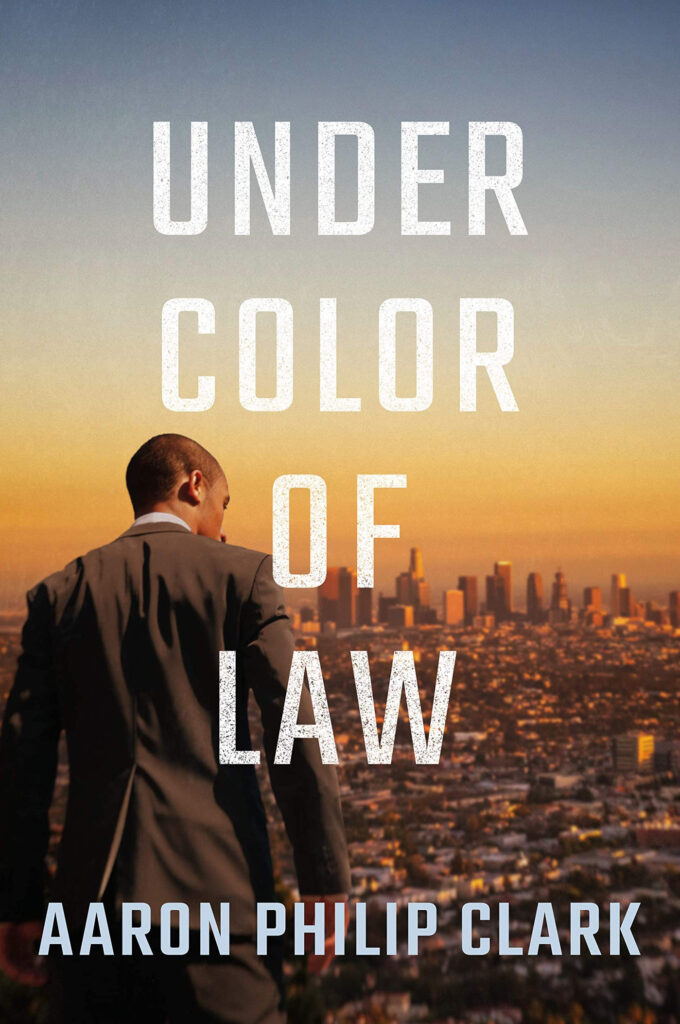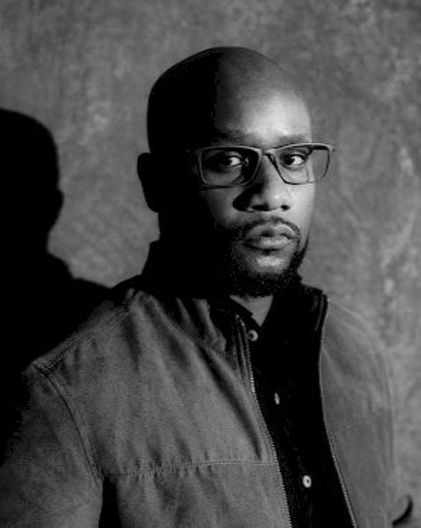Aaron Philip Clark, Under Color of Law
Review by Lee Horsley
Aaron Philip Clark’s Under Color of Law is a gripping, sharply observed, fast-moving journey through the dark and treacherous world of the LAPD. It is written as the first-person, present tense narrative of Detective Trevor ‘Finn’ Finnegan, a young black cop who daily confronts the kind of horrors “that strip a person bare and leave them hollow”. We have a sense of travelling with the narrator as he undertakes his perilous tasks, finding things out at the same time he does and sharing his perspective so completely that we feel each narrative shock as events unfold.
Drawing on his own experiences of working in the LAPD, Clark creates a powerful representation of Los Angeles crime, policing and official corruption as experienced by a detective who is throughout tormented by his own inner demons and his habit of creating conflicts with those around him:
“I may be the most hated detective in the Southwest Division… I have an 87 percent clearance rate. But if you were to ask those I serve with, they would… say that I hustled my way to becoming a Detective in the coveted Robbery-Homicide Division—that I bent the rules, forced the department’s hand—and they wouldn’t be lying. See, I’m a good cop, but I fear I haven’t been a good man in a long while.”
Haunted by his own bad decisions, Finn is determined to try to tackle the brutality and abuses of power that are rife in the LAPD. The case at the centre of Under Color of Law is the murder of a black recruit who is training to become a rookie – the kind of case that could ignite Angelinos’ anger if it turns out that the victim’s death has anything to do with his skin colour: “a dead black police recruit at a time when many black people don’t trust or want anything to do with the police… it could turn the city upside down.” Finn becomes convinced that justice for the murdered man will come only by bringing the full truth to light.
Under Color of Law is both a compelling crime novel and a persuasive engagement with the wider issues raised. Thoughtful and nuanced, it confronts the complexity of policing LA. Finn’s ex-cop father tells him that “maybe you aren’t doing enough to change things,” but neither of them underrates the difficulty of this mission: “to be a black cop in Los Angeles—or anywhere else, for that matter—requires the ability to walk a tightrope. And the moment you miss a step, stumble, or go crashing below, you become another example of why blacks don’t belong in the ranks.”
Clark’s novel is an insightful exploration both of the systemic problems of policing a city like Los Angeles and of the struggle within his protagonist’s own character. Finn’s failures make him doubt his ability to tackle the damage inflicted by fellow policemen who have shown themselves to be corrupt and sociopathic. How can someone as manifestly flawed as he is change stubbornly resistant circumstances or right wrongs? Finn’s determination to stop the erosion of trust in the whole of the LAPD means that he must grapple with his own weaknesses as well as the hostility of fellow officers. He is driven on by a recognition that is at the heart of Under Color of Law: “The city may be veering to the point of no return, and if so, it’s because its failures are what got us here…Justice…will come only one way. It’s the time for daylight; the citizens of Los Angeles deserve the truth.”


